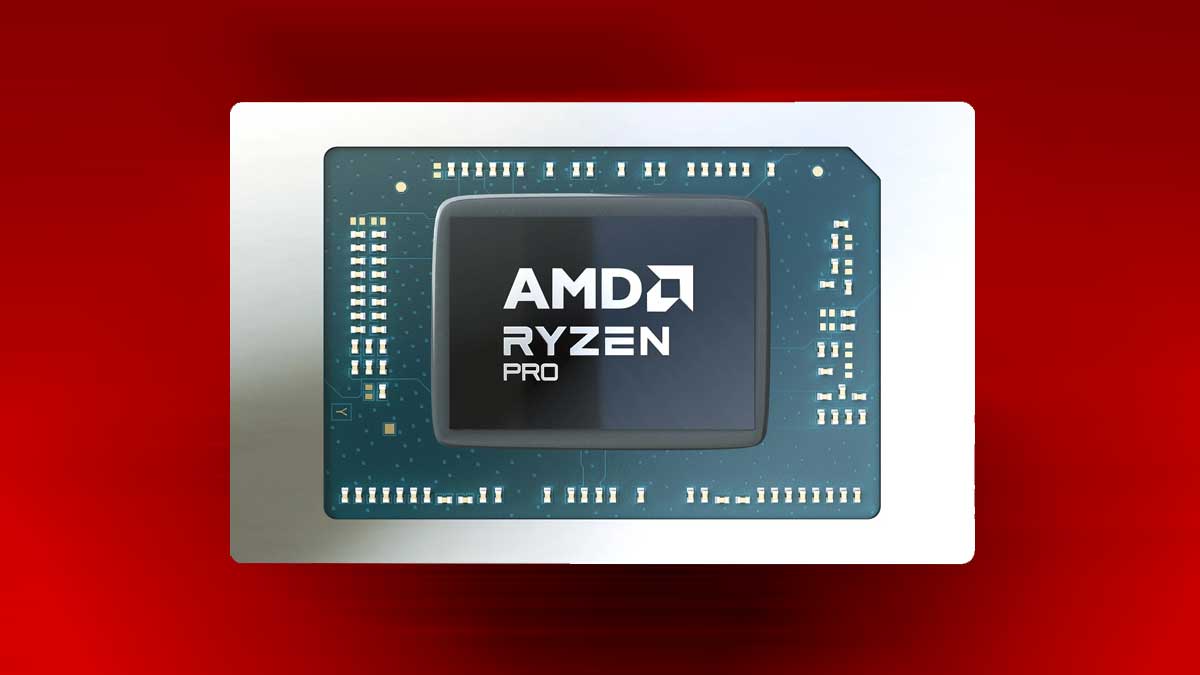- Home
- Billionaires
- Investing Newsletters
- 193CC 1000
- Article Layout 2
- Article Layout 3
- Article Layout 4
- Article Layout 5
- Article Layout 6
- Article Layout 7
- Article Layout 8
- Article Layout 9
- Article Layout 10
- Article Layout 11
- Article Layout 12
- Article Layout 13
- Article Layout 14
- Article Sidebar
- Post Format
- pages
- Archive Layouts
- Post Gallery
- Post Video Background
- Post Review
- Sponsored Post
- Leadership
- Business
- Money
- Small Business
- Innovation
- Shop
Recent Posts
AMD’s Ryzen Pro 8000 Series Boosts AI in Business PCs

AMD has announced the launch of its Ryzen Pro 8000 series processors, a significant advancement in the integration of AI capabilities into commercial PCs. This release follows AMD’s strategic pattern of releasing consumer laptop processors early in the year, followed by the commercial Pro series shortly after. The Ryzen Pro 8000 series is specifically designed for enterprise applications, offering enhanced security features and manageability tools crucial for business environments.
The Ryzen Pro 8000 series is part of AMD’s broader “Pervasive AI” portfolio, which encompasses a range of products spanning from data center solutions to edge devices and client devices. This portfolio strategy allows AMD to cater to diverse market needs while maintaining a cohesive AI-focused approach across its product lines.
The Ryzen Pro 8040 series, designed for commercial notebooks, features processors with power consumption ranging from 15 watts to 54 watts and includes six to eight CPU cores. Notably, all processors in this series, with the exception of the entry-level 8540U, are equipped with AMD’s Neural Processing Unit (NPU), enabling AI processing capabilities. AMD is positioning these processors to compete directly with Intel’s Core Ultra family of processors, particularly in terms of professional workload performance.
In addition to performance enhancements, AMD claims improved battery life for tasks such as video playback, a key consideration for mobile professionals. While evaluating battery life claims can be complex due to varying user behaviors, AMD’s emphasis on this aspect underscores its commitment to delivering a comprehensive user experience.
On the desktop front, the Ryzen Pro 8000G/E series offers a commercial version of AMD’s consumer desktop processors. This series introduces eight new processors with thermal design power (TDP) ratings ranging from 35 watts to 65 watts and features four to eight cores. AMD is comparing the Ryzen 7 Pro 8700G processor to Intel’s Core i7 14700 series processors, highlighting competitive performance across various workloads. These processors also mark AMD’s first foray into bringing AI capabilities to commercial desktops, following the successful release of the Ryzen 8000G series, the first desktop PC processor with onboard AI processing.
However, unlike their notebook counterparts, the lower-end processors in the Ryzen Pro 8000G/E series do not feature an NPU for efficient AI execution. This decision could potentially create confusion among enterprise IT decision-makers and may limit AMD’s ability to promote AI processors in commercial desktops effectively.
In terms of security and connectivity, AMD’s Ryzen Pro line incorporates AMD’s Pro Security features, combining hardware and software security to enhance system security for independent software vendors (ISVs) and original equipment manufacturers (OEMs). The Ryzen Pro 8000 series also integrates Microsoft Pluton security for “chip-to-cloud” protection and features AMD Memory Guard to protect sensitive business data in case of theft or loss. AMD claims that its manageability is 41% faster to deploy than Intel’s vPro, as per a commissioned study.
To enhance connectivity options, AMD has partnered with Qualcomm and MediaTek for Wi-Fi 7 connectivity on select laptop and desktop systems, providing users with advanced wireless networking capabilities.
In conclusion, the Ryzen Pro 8000 series represents a significant advancement in AMD’s AI capabilities, particularly in the commercial PC market. While the decision to exclude AI capabilities from all desktop SKUs may present a missed opportunity, AMD’s latest offerings have received positive feedback from partners like Lenovo and HP. It will be interesting to see how these new processors perform against Intel’s counterparts in the market and how AMD continues to evolve its AI strategy in the future.
Recent Posts
Categories
- 193cc Digital Assets2
- 5G1
- Aerospace & Defense21
- AI17
- Arts1
- Banking & Insurance11
- Big Data3
- Billionaires153
- Boats & Planes1
- Business134
- Careers13
- Cars & Bikes39
- CEO Network1
- CFO Network16
- CHRO Network1
- CIO Network1
- Cloud6
- CMO Network17
- Commercial Real Estate7
- Consultant1
- Consumer Tech46
- CxO1
- Cybersecurity12
- Dining1
- Diversity, Equity & Inclusion4
- Education6
- Energy8
- Enterprise Tech24
- Events11
- Fintech1
- Food & Drink2
- Franchises1
- Freelance1
- Future Of Work2
- Games61
- GIG1
- Healthcare28
- Hollywood & Entertainment41
- Houses1
- Innovation21
- Investing2
- Investing Newsletters4
- Leadership62
- Lifestyle9
- Manufacturing1
- Markets19
- Media101
- Mobile phone1
- Money13
- Personal Finance2
- Policy109
- Real Estate1
- Research6
- Retirement1
- Small Business1
- SportsMoney4
- Style & Beauty1
- Success Income1
- Taxes1
- Travel9
- Uncategorized1
- Vices1
- Watches & Jewelry1
- world's billionaires127
Related Articles
Lenovo Challenges Nvidia with New AI Offerings
Lenovo recently unveiled a range of AI-focused updates to its infrastructure portfolio,...
By 193cc Agency CouncilApril 29, 2024Meta Launches Llama 3: Advanced AI Model
Meta has unveiled its latest innovation, Llama 3, as the newest iteration...
By 193cc Agency CouncilApril 24, 2024Tabnine integrates RAG for contextual code generation.
Tabnine, the Tel Aviv-based AI coding platform company, has announced significant enhancements...
By 193cc Agency CouncilFebruary 26, 2024Nerdio Simplifies Cloud-Based Virtual Desktops
Cloud computing offers a powerhouse of functions and IT capabilities, but its...
By 193cc Agency CouncilFebruary 15, 2024














Leave a comment